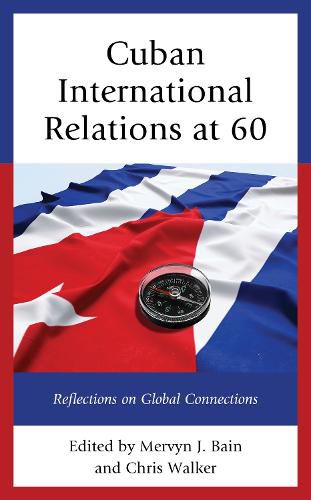Readings Newsletter
Become a Readings Member to make your shopping experience even easier.
Sign in or sign up for free!
You’re not far away from qualifying for FREE standard shipping within Australia
You’ve qualified for FREE standard shipping within Australia
The cart is loading…






Cuban International Relations at 60 brings together the perspectives of leading experts and the personal accounts of two ambassadors to examine Cuba’s global engagement and foreign policy since January 1959 by focusing on the island’s key international relationships and issues. Thisbook’s first section focuseson Havana’s complex relationship with Washington and its second section concentrates on Cuba’s other key relationships with consideration also being given to Cuba’s external trade and investment sectors and the possibility of the island becoming a future petro-power. Throughout this study due attention is given to the role of history and Cuban nationalism in the formation of the island’s unique foreign policy. This book’s examination and reflection on Cuba as an actor on the international arena for the 60 years of the revolutionary period highlights the multifaceted and complex reasons for the island’s global engagement. It concludes that Cuba’s global presence since January 1959 has been remarkable for a Caribbean island, is unparalleled, and is likely to continue for the foreseeable future. Scholars of international relations, Latin American studies, and political science n will find this book particularly interesting.
$9.00 standard shipping within Australia
FREE standard shipping within Australia for orders over $100.00
Express & International shipping calculated at checkout
Cuban International Relations at 60 brings together the perspectives of leading experts and the personal accounts of two ambassadors to examine Cuba’s global engagement and foreign policy since January 1959 by focusing on the island’s key international relationships and issues. Thisbook’s first section focuseson Havana’s complex relationship with Washington and its second section concentrates on Cuba’s other key relationships with consideration also being given to Cuba’s external trade and investment sectors and the possibility of the island becoming a future petro-power. Throughout this study due attention is given to the role of history and Cuban nationalism in the formation of the island’s unique foreign policy. This book’s examination and reflection on Cuba as an actor on the international arena for the 60 years of the revolutionary period highlights the multifaceted and complex reasons for the island’s global engagement. It concludes that Cuba’s global presence since January 1959 has been remarkable for a Caribbean island, is unparalleled, and is likely to continue for the foreseeable future. Scholars of international relations, Latin American studies, and political science n will find this book particularly interesting.